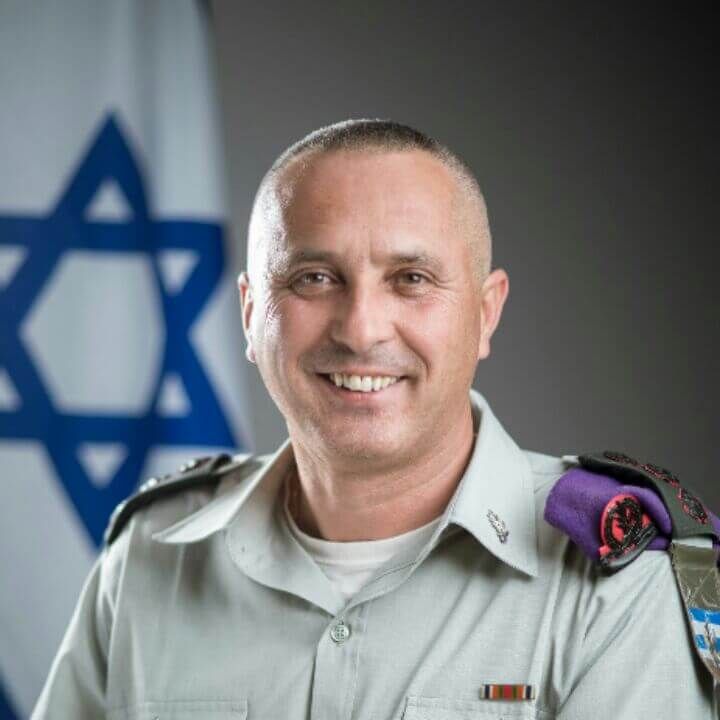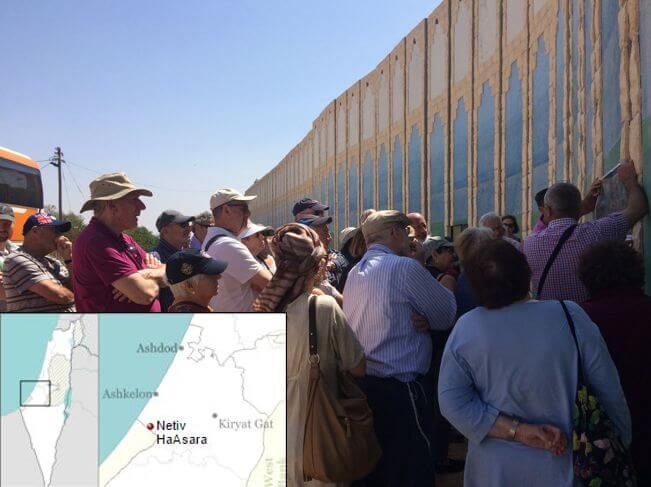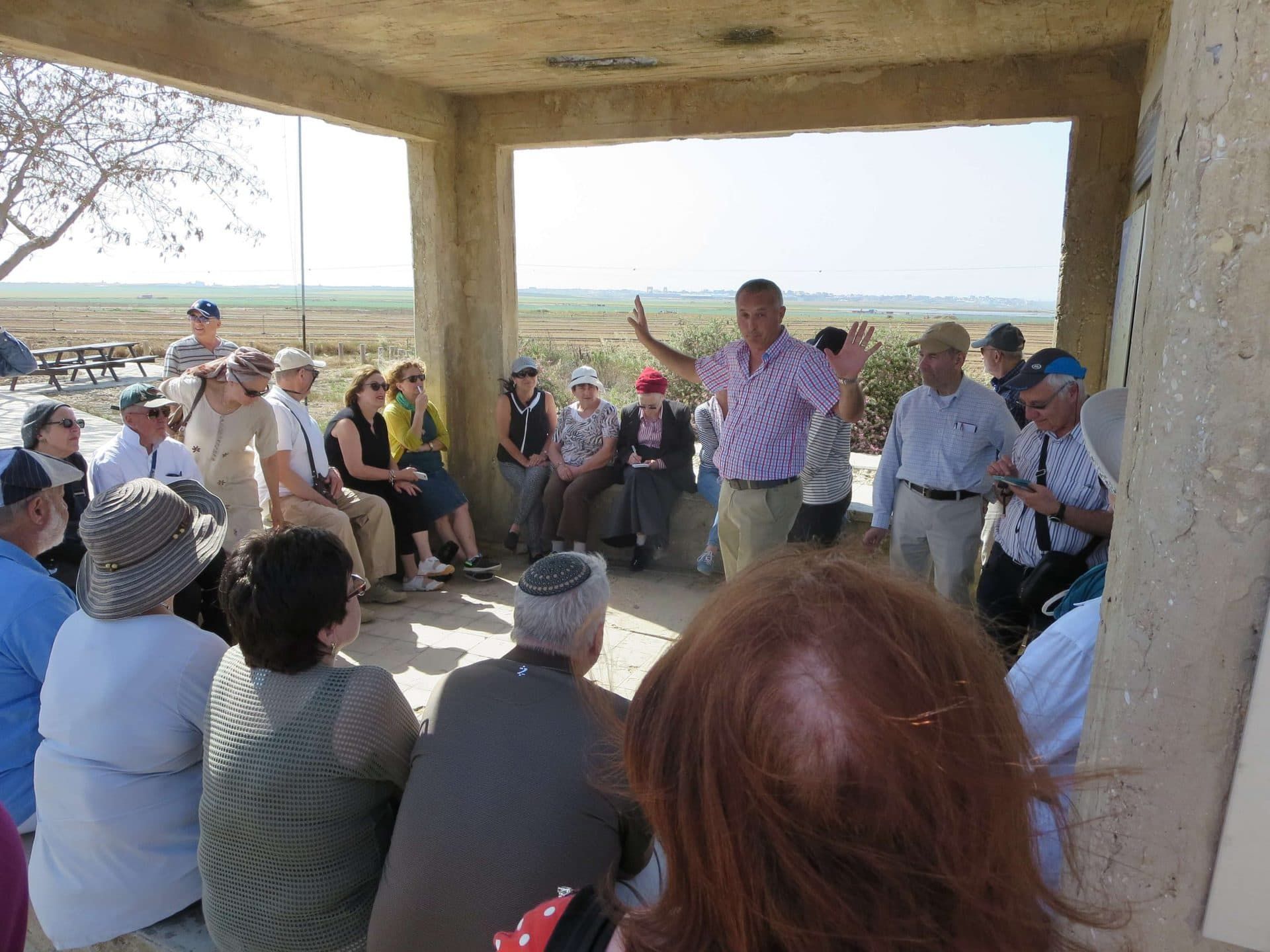On April 19, 40 people, many of them visiting Israel for the Passover holiday, spent a unique day with HonestReporting, focusing on the policy, economics, infrastructure, society and security of the Gaza Strip, both from a historical perspective, current issues, and what to expect from the future.
The tour was led by former Head of the Civilian Department in the IDF’s Coordinator of Government Activities in the Territories (COGAT) unit, Colonel (Ret.) Grisha Yakubovich.
Field tour participant Brenda Yablon is an award winning journalist who divides her time between Tel Aviv and Vancouver and gives her thoughts on the day here.

“There are over a million people in Gaza today under the age of 18. They are taught to hate us, and that Israel is the cause of all their problems.”
This was one of the many disturbing facts related by IDF Colonel (Ret.) Grisha Yakubovich who was giving a group of us an intensive crash course in the history of Gaza since 1967, and the enormously complex problems inherent in governing it. As a member of COGAT – the Coordinator of Government Activities in the Territories, the body charged with implementing the policies of the Israeli government in civilian matters in the West Bank and Gaza, and as a former mayor of Gaza City, Yakubovich is intimately acquainted with the inherent challenges and frustrations which often make governing next to impossible.
But even at the most basic levels of services such as water and electricity, almost nothing works. According to the Oslo Accords, Israel is supposed to provide Gaza with seven percent of its water. Because of fighting between the Palestinian Authority, Israel and Hamas over shared water resources, Gazans are chronically short of water. In their desperate search for water, the Gazans ruined much of their aquifer through uncontrolled digging of wells, with further damage sustained by sewage (there are no operating sewage treatment plants), and seepage of sea water, caused largely by the Egyptian government’s flooding of our 1100 illegal tunnels connecting Gaza with the Sinai Peninsula. “The Egyptians hate Hamas even more than they hate Israel,” explains Yakubovich. On an average day, Gazans have only 6-8 hours of electricity.

A desalination plant would be one obvious solution to Gaza’s water problem, but desalination requires a lot of electricity, which Gaza doesn’t have. Nor does Gaza have enough electricity to treat its own sewage. There already exists a sewage treatment plant in North Gaza, built by the World Bank. But it needs power to operate, which it doesn’t have. Gaza’s sewage is already becoming problematic for Israel, by ending up on the beaches of nearby Ashkelon.
Israel, by contrast, has solved it’s own water problems by protecting its aquifer, and building sewage treatment and desalination plants. “Israel is actually in a situation now where it can solve the water crisis for Gaza,” says Yakubovich. “Right now Hamas manufactures its rockets during the few hours of electricity they have every day. Israel can sell them more electricity, but then Hamas would have more time to build more rockets. Israel needs assurances that this won’t happen, and there are no such assurances forthcoming.”
Along similar lines, Israel allows about 800 trucks a day into Gaza, through the Kerem Shalom crossing. These trucks bear essential items such as food and medicine, and building supplies to rebuild much of Gaza’s water, electricity and sewage infrastructure damaged in wars with Israel. But Hamas has designated much of the building materials to rebuild huge tunnels large enough for a bus or truck to go through, for the purpose of launching deadly attacks against Israel.
“We won’t see peace in the coming 50 years,” says Yakubovich. “We need to provide Gazans with water and electricity, and allow them to cross into Israel to work. For this to happen the international community, and especially Egypt and Jordan must be involved.”
In the meantime, the hapless people of Gaza remain trapped, victims of a situation they did not create, and powerless to do anything about it. And an entire generation is growing up without hope, and with hatred as its main fuel.


